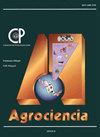CHALLENGES AND MANAGERIAL STRATEGIES OF COFFEE COOPERATIVES FROM THE HUATUSCO REGION IN MEXICO: A LEADERS' PERSPECTIVE
IF 0.5
4区 农林科学
Q4 AGRICULTURE, MULTIDISCIPLINARY
引用次数: 1
Abstract
Coffee cooperatives from the Huatusco region in Mexico have played an important role in helping coffee farmers in this region maintain economic viability in the midst of Mexico’s economic crisis and the international crisis of the coffee sector over time. While these types of organizations have played an important role, not all of these organizations have survived over time. Using information from interviews with leaders of five longeval coffee producer cooperatives in the Huatusco coffee region, this study tries to identify factors that could explain the longevity and long-term sustainability of these organizations. Additionally, using information from these interviews, we evaluate challenges that could put at risk the long-term sustainability of these associations and strategies to overcome these challenges from the cooperative’s leadership perspective. Findings from this study suggest the motivations behind the creation of these producer associations that goes beyond accessing government resources, an institutional structure where there is a democratic process behind the election of leaders, leadership positions have a definite term, and association strategies to increase member engagement could explain the longevity of these organization. Regarding challenges the cooperatives would be facing in the future, the aging population of growers is perceived by cooperative leaders as one of the major challenges they will be facing in the future. Increasing youth involvement in the cooperatives through training and educational activities was perceived by cooperative leaders as a strategy to overcome this challenge.墨西哥华图斯科地区咖啡合作社的挑战与管理策略:领导者的视角
墨西哥Huatusco地区的咖啡合作社在帮助该地区的咖啡农在墨西哥经济危机和国际咖啡行业危机中保持经济活力方面发挥了重要作用。虽然这些类型的组织发挥了重要作用,但并不是所有这些组织都能存活下来。利用对Huatusco咖啡地区五个历史悠久的咖啡生产合作社领导人的访谈信息,本研究试图确定可以解释这些组织的寿命和长期可持续性的因素。此外,利用这些访谈的信息,我们评估了可能危及这些协会长期可持续性的挑战,以及从合作社领导的角度克服这些挑战的策略。本研究的结果表明,这些生产者协会创建背后的动机不仅仅是获取政府资源,一种制度结构,在这种结构中,领导人的选举背后有一个民主的过程,领导职位有一个明确的任期,以及增加成员参与度的协会策略可以解释这些组织的长寿。关于合作社未来将面临的挑战,合作社领导人认为,种植者人口老龄化是他们未来将面临的主要挑战之一。合作社领导人认为,通过培训和教育活动增加青年对合作社的参与是克服这一挑战的一项战略。
本文章由计算机程序翻译,如有差异,请以英文原文为准。
求助全文
约1分钟内获得全文
求助全文
来源期刊

Agrociencia
农林科学-农业综合
CiteScore
0.50
自引率
33.30%
发文量
51
审稿时长
18-36 weeks
期刊介绍:
AGROCIENCIA is a scientific journal created and sponsored by the Colegio de Postgraduados. Its main objective is the publication and diffusion of agricultural, animal and forestry sciences research results from mexican and foreign scientists. All contributions are peer reviewed. Starting in the year 2000, AGROCIENCIA became a bimonthly and fully bilingual journal (Spanish and English versions in the same issue). Since 2007 appears every month and a half (eight issues per year). In addition to the printed issues, the full content is available in electronic format.
 求助内容:
求助内容: 应助结果提醒方式:
应助结果提醒方式:


